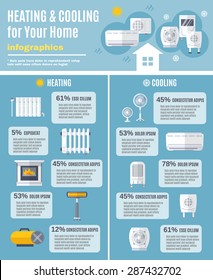Discover The Essential Strategies To Boost The Performance And Life Expectancy Of Your Heatpump System By Preventing Normal Setup Errors
Discover The Essential Strategies To Boost The Performance And Life Expectancy Of Your Heatpump System By Preventing Normal Setup Errors
Blog Article
Content By-Stuart Wheeler
When setting up a heat pump, you must stay away from common errors that might threaten its efficiency. Ignoring appropriate sizing might result in inadequacies and higher energy costs. Disregarding insulation and sealing could cause energy waste and strain on the system. In addition, positioning the exterior system inaccurately might influence its efficiency. By avoiding these errors, you can guarantee optimal functioning and toughness of your heatpump system.
Improper Sizing of Heatpump
When it comes to the installation of heatpump, one of the most typical errors is improperly sizing the unit for your room. Making certain the appropriate size is important for ideal performance. If the heat pump is too tiny, it will have a hard time to warm or cool your room successfully, bring about boosted energy expenses and potential deterioration on the unit.
On the other hand, if the heatpump is as well large, it will certainly cycle on and off frequently, triggering temperature level changes and lowering its life-span.
To avoid this mistake, it's vital to have an expert examine your area and advise the suitable dimension of the heat pump based on aspects like square video footage, insulation, ceiling elevation, and local climate. By investing the time and initiative to make certain the proper sizing, you can take pleasure in a comfortable setting while optimizing power effectiveness and extending the lifespan of your heatpump.
Inadequate Insulation and Sealing
To ensure the efficient procedure of your heat pump, it's important to deal with insufficient insulation and securing in your room. Correct insulation helps maintain a consistent temperature level inside, minimizing the workload on your heatpump. https://clean-air-experts84051.liberty-blog.com/30600683/heatpump-repair-work-clues-that-your-system-is-in-need-of-specialist-intervention can cause energy loss, making your heatpump job harder and much less efficiently.
Sealing any type of spaces or leaks in your room is similarly crucial. These gaps enable conditioned air to run away and outdoor air to permeate in, forcing your heatpump to make up for the temperature changes.
Inaccurate Placement of Outdoor Device
Dealing with the positioning of your heatpump's outside system is key to enhancing its performance. Setting up Suggested Studying in an inaccurate location can lead to performance issues and prospective damage to the unit.
One typical error to prevent is placing the outdoor unit also near a wall surface or various other structures. https://top-commercial-cleaning-c51738.blogsvila.com/30623047/clarify-the-misconceptions-and-make-enlightened-selections-to-ensure-your-heatpump-operates-effectively can restrict air movement, causing the system to function tougher to warm or cool your area, eventually reducing its performance and lifespan.
One more mistake to stay away from is putting the exterior system in straight sunshine. While some sunshine is inevitable, extreme direct exposure can cause overheating, particularly during hot summer days. It's ideal to position the outdoor device in a shaded area to aid preserve its ideal operating temperature level.
Additionally, ensure that the outside system is put on a secure and degree surface area. Uneven ground can trigger resonances and unnecessary strain on the device, impacting its efficiency gradually.
Final thought
In conclusion, avoiding typical mistakes during heat pump setup is crucial for making the most of efficiency and long life of your system. By ensuring proper sizing, sufficient insulation, sealing, and correct positioning of the outside device, you can protect against concerns such as ineffectiveness, increased power costs, and pressure on the system. Making the effort to resolve these crucial factors will inevitably conserve you money and time over time.
